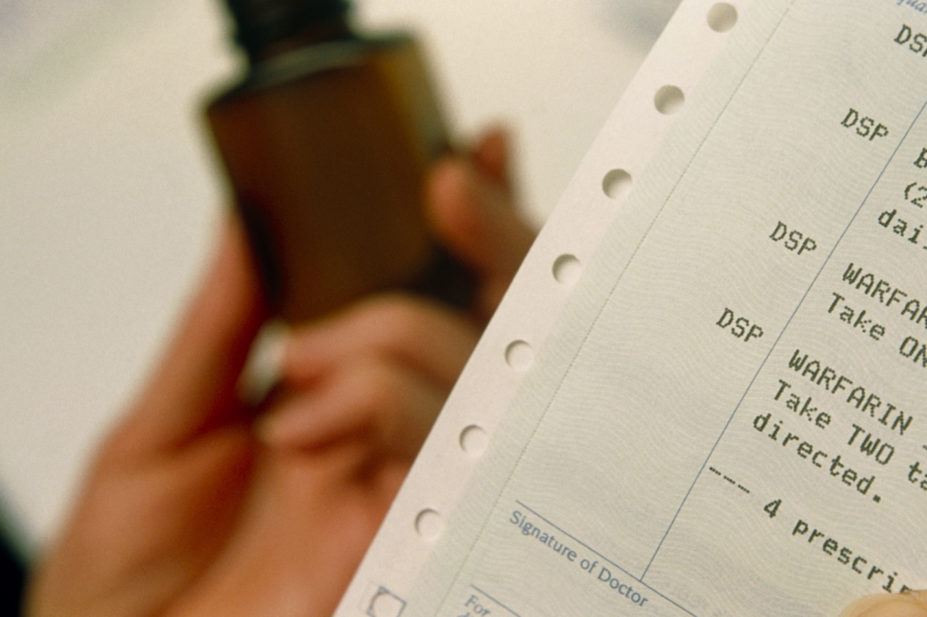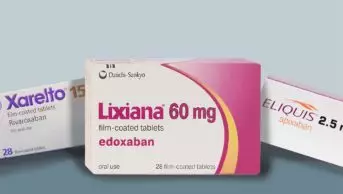
Jim Varney / Science Photo Library
More than 700 patients with a mechanical heart valve who were switched to a direct oral anticoagulant (DOAC) during the pandemic should be reviewed “urgently” before 28 July 2021, a “safety critical” National Patient Safety Alert from NHS England has ordered.
In March 2020, NHS England published guidance advising clinical teams to review patients taking vitamin K antagonists (VKA), such as warfarin, and change their medication to an alternative anticoagulant where appropriate, such as a low molecular weight heparin (LMWH), such as dalteparin, or a DOAC, apixaban.
The switch was advised in an effort to ease pressure on the NHS during the COVID-19 pandemic by removing the need for regular monitoring.
The NHS guidance listed exceptions where specific patients should not be switched from a VKA, which included patients with a mechanical heart valve.
However, according to the alert, 14 incidents were reported since 1 March 2020 in which patients with a mechanical heart valve had been switched from warfarin to a LMWH or a DOAC. In two of the incidents, the patients were hospitalised owing to valve thrombosis and/or required emergency surgery, and one was admitted with severe anaemia.
The majority of switching was found to occur in secondary care, but in four of the cases the switching was carried out in primary care.
In collaboration with the OpenSAFELY team at The DataLab and using EMIS and TPP software, NHS England and NHS Improvement identified “around 750 patients” who had a code for a mechanical heart value and had been prescribed a DOAC.
The alert states that “no later than 28 July 2021” GP practices should “urgently” review specific patients who have a record of a mechanical heart value and are receiving a DOAC to ensure they are on the most appropriate anticoagulation therapy and monitoring.
Providers of NHS anticoagulation review services, including community pharmacies, should “urgently” check patient records from January 2020, the alert adds, to identify any patient with a mechanical heart value who has been switched from a VKA to another anticoagulant and work with GP practices to ensure they receive an urgent review.
According to the alert, all patients with prosthetic mechanical heart valves require life-long oral anticoagulation with a VKA, usually warfarin, as the valves predispose the patient to systemic embolism.
Thrombosis of a prosthetic valve is potentially life-threatening and can result in haemodynamically severe stenosis, or acute heart failure.
READ MORE: Warfarin treatment continued in ‘small number’ of patients after starting on DOACs, MHRA says


